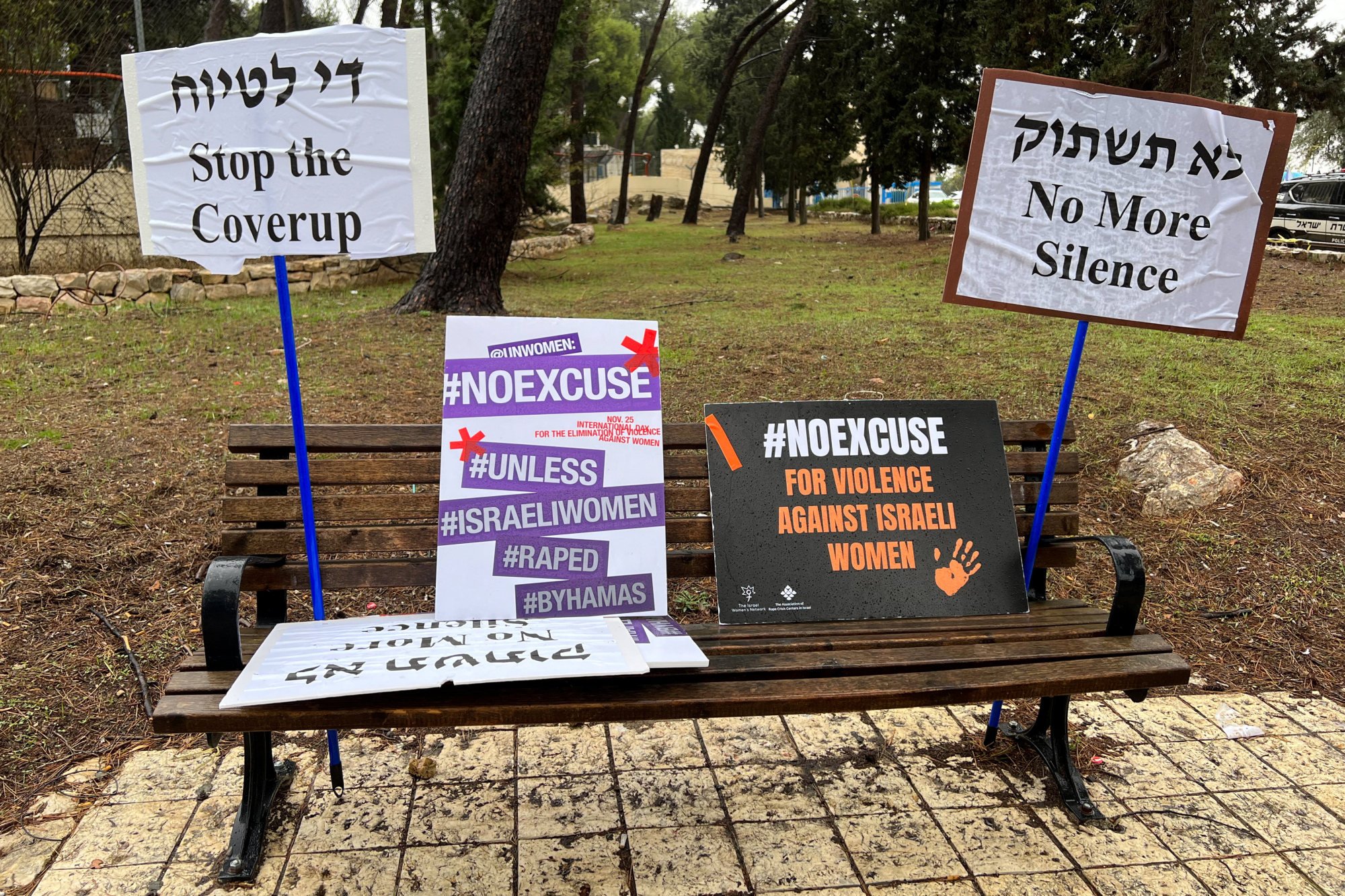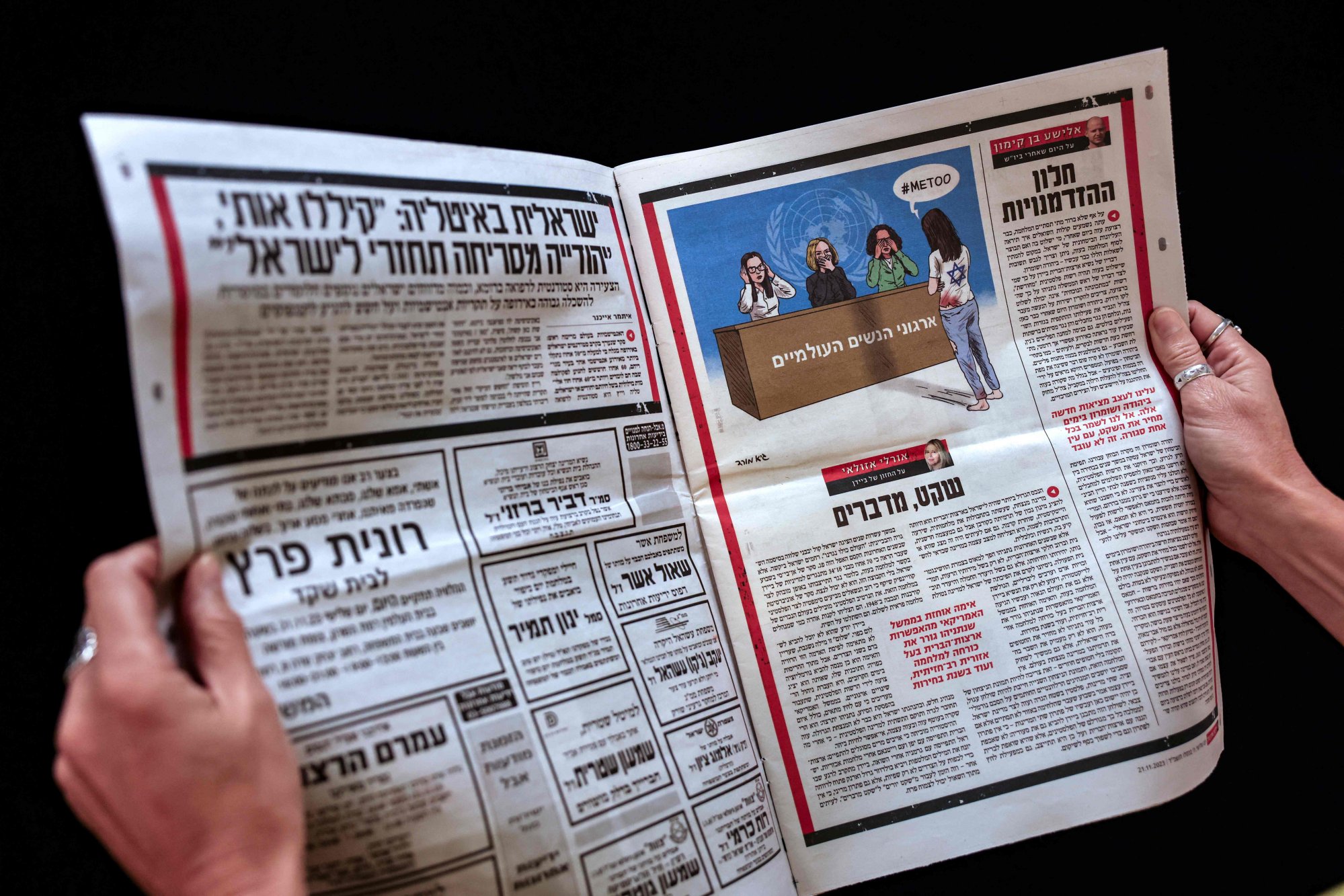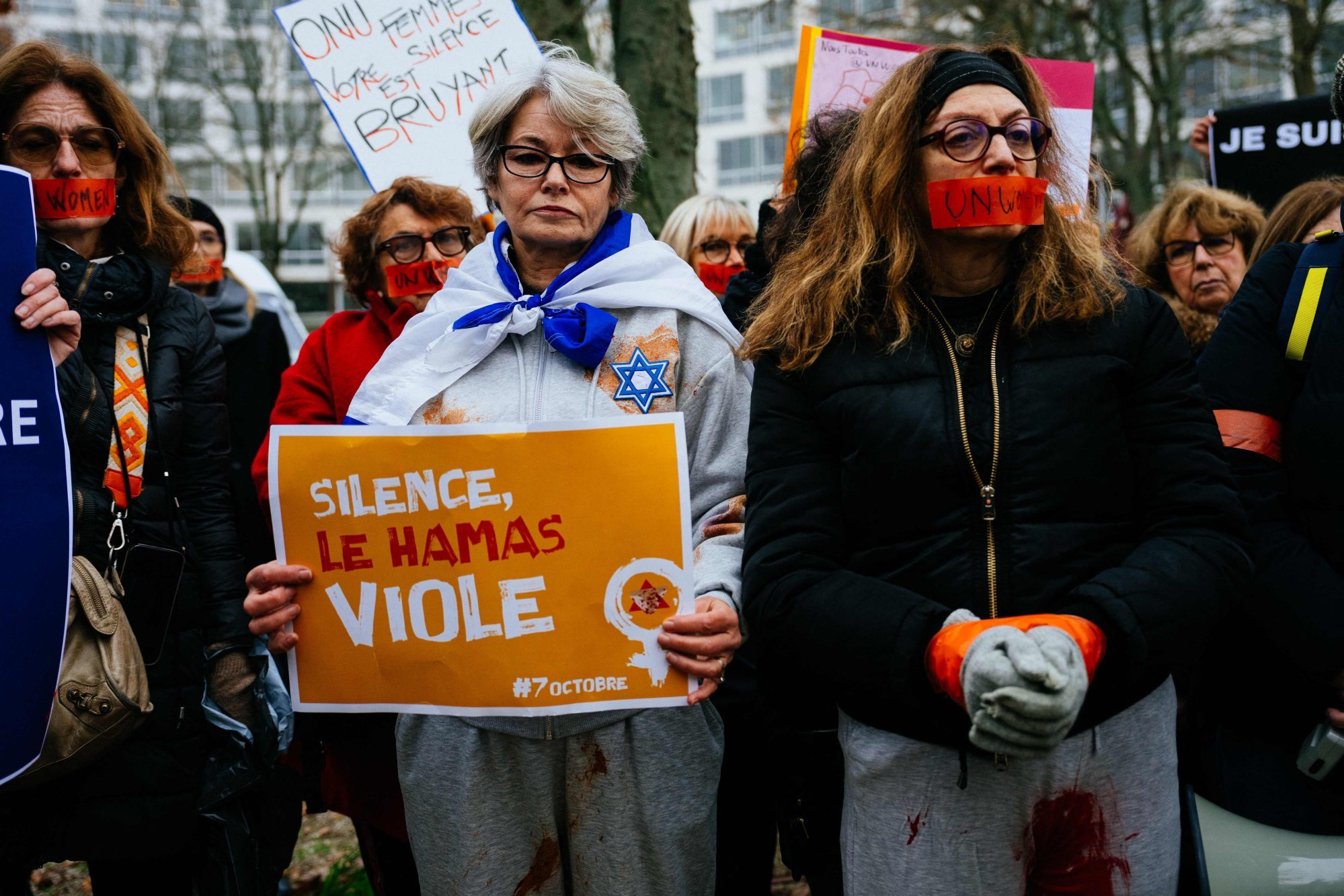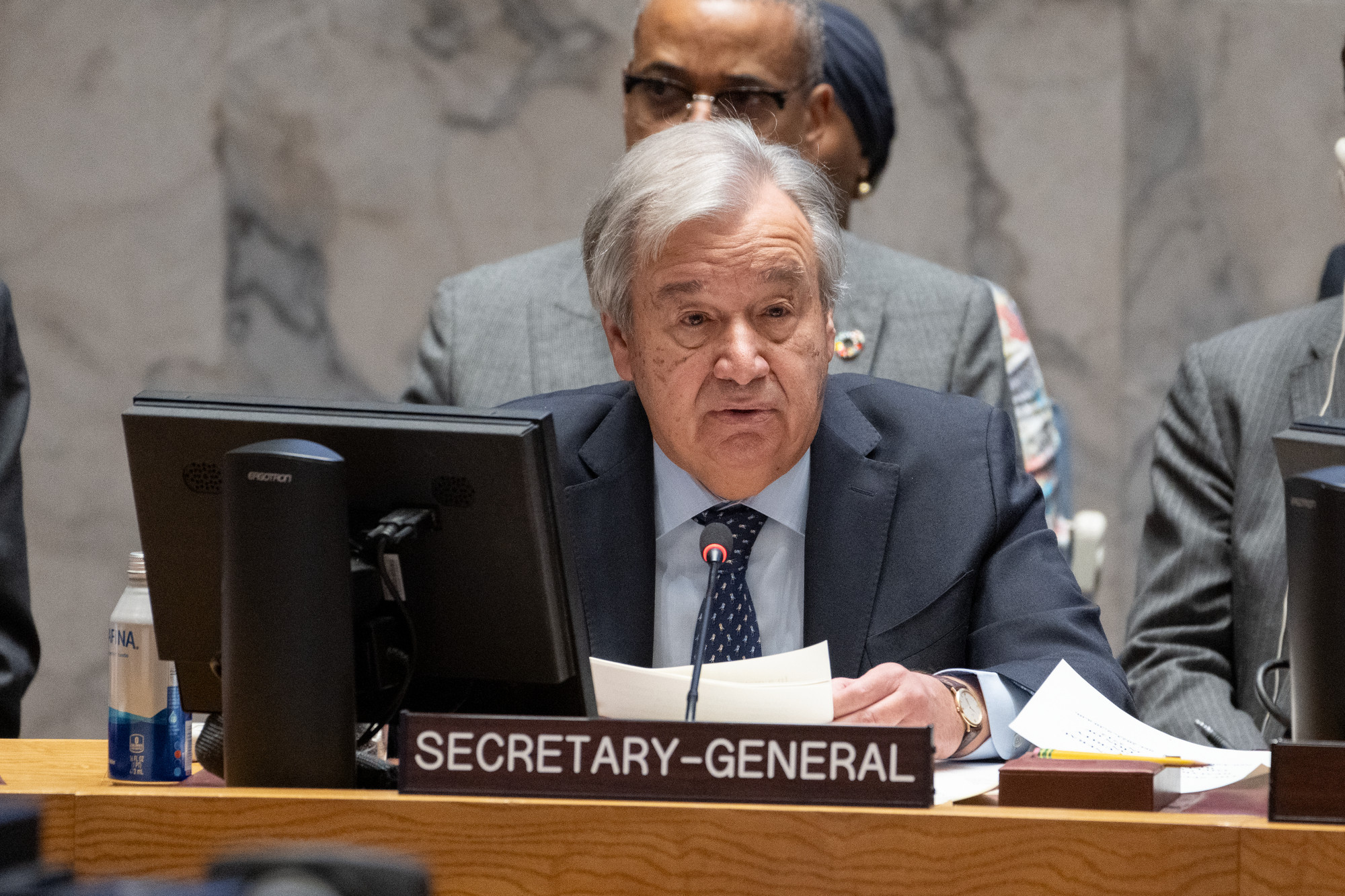Their inquiry has, so far, gathered “more than 1,500 shocking and difficult testimonies”, a senior police officer told Israel’s parliament this week, from witnesses, doctors and pathologists.

Shortly after the attacks, Israeli rights experts sent letters detailing the evidence to key international bodies such as UN Women and the UN Committee on the Elimination of Discrimination Against Women (CEDAW).
But until this week, when both the UN secretary-general and UN Women issued statements on the allegations, campaigners say the responses were minimal, leaving them deeply frustrated and accusing the global human rights community of betrayal.
In a response to AFP late on Friday, UN Women said it was “aware of concerns” about the reactions of women’s organisations, saying it was “the first part of the UN system to publicly express alarm at reports of gender-based violence including sexual violence”.
In a statement hours later, it said it was “alarmed by the numerous accounts of gender-based atrocities and sexual violence” during the Hamas attacks and had “called for all accounts of gender-based violence to be duly investigated and prosecuted”.
Legal expert Ruth Halperin-Kaddari, who has been at the forefront of efforts to challenge the silence from global institutions, said: “This is the statement they should have issued two months ago.”

The issue has fuelled growing anger in Israel. A cartoon last week in Yediot Aharonot newspaper depicted an Israeli woman in bloodied, torn clothes saying “Me too” to a panel of three UN women – one covering her ears, one covering her eyes and one covering her mouth.
In the weeks after October 7, statements by UN Women predominantly focused on the situation in the Gaza Strip, where the Hamas government says Israel’s retaliatory bombardment has killed more than 15,000 people, mostly women and children.
On October 27, CEDAW urged “all parties to systematically address the gender dimension of conflict”.
A UN commission has now invited submissions on “allegations of gender-based crimes, with an emphasis on murder and hostage-taking, rape and other forms of sexual violence”.
Halperin-Kaddari accused international organisations of wilfully ignoring evidence for nearly two months.
“None of these bodies acknowledged the fact that there were war crimes committed here or crimes against humanity,” she said.
“And none mentioned the sexual violence against women that was used systematically, intentionally and deliberately, which is a case of weaponising women and using rape as a weapon of war.”
Halperin-Kaddari, a former vice-chair of CEDAW, said the reticence of such UN entities was “a shameful abuse of their mandate and their mission”.
At an Israeli parliamentary hearing on Monday, senior police investigator Shelly Harush provided harrowing evidence of sexual violence and mutilation including “an apocalypse of corpses, girls stripped bare above the waist and below”, and a grisly witness account of the gang rape, mutilation and murder of a young woman.
Another witness she cited spoke of wounds to the “genitals, abdomen, legs and buttocks” with some having their “breasts cut off” or sustaining “gunshot wounds”. First responders described encountering bodies “with their hands cuffed behind their backs, a woman’s corpse bleeding from the genital area”.
Police investigations chief Shlomit Landes said they were attacked “just for being women”, including some who were pregnant.
“Most were murdered. Those who survived – because they hid, among them children – we’ve not yet spoken to … due to the depth of their trauma,” she said.

European Parliament vice-president Pina Picierno told the hearing that Hamas had committed “war crimes” that were “beyond what any woman in the world could ever imagine … Israeli women cannot be left alone in this terrible time”.
“All international organisations and women’s organisations should condemn the Hamas attack and defend the victims,” she said.
“Pretending to not see … for political reasons is a second terrible violence.”
Israel Women’s Network head Einat Fischer Lalo said the global feminist struggle and the MeToo movement had turned into “a struggle of ‘Yes, but …’”.
“‘Yes, we are against rape, but not of all women’, ‘Yes, we are against sexual abuse, but it depends on what nationality you are’, ‘Yes, we believe you, but if you are Israeli women who have been hurt by terrorists, then please bring us proof otherwise we are not on your side’,” she said.

On Thursday, UN Secretary-General Antonio Guterres issued a statement on X, saying: “There are numerous accounts of sexual violence during the abhorrent acts of terror by Hamas on 7 October that must be vigorously investigated and prosecuted.”
Yael Sherer, an internationally respected forensic expert with experience in collecting evidence from victims of sexual violence, said it was the first time he had addressed the issue, dismissing his reaction as “too little, too late”.
“It’s a disgrace,” she said, adding his reaction came after “immense public pressure” and thousands of emails to UN departments.
She said she had encountered unprecedented levels of cynicism about the allegations, despite her expertise in the field.
“The fact that people were found naked, restrained with their hands behind their backs and tied to chairs wasn’t enough for them?” she said. “It’s outrageous and insulting.”
Halperin-Kaddari said international bodies’ reticence was partly driven by preconceptions about the decades-long conflict including “the difficulty of stepping away from the conventional construction of Israel as the aggressor as the Palestinians as victims”.
“Here, the situation flipped,” she said. “They could not attribute such evil to those who they always prefer to see as being the victims.”

